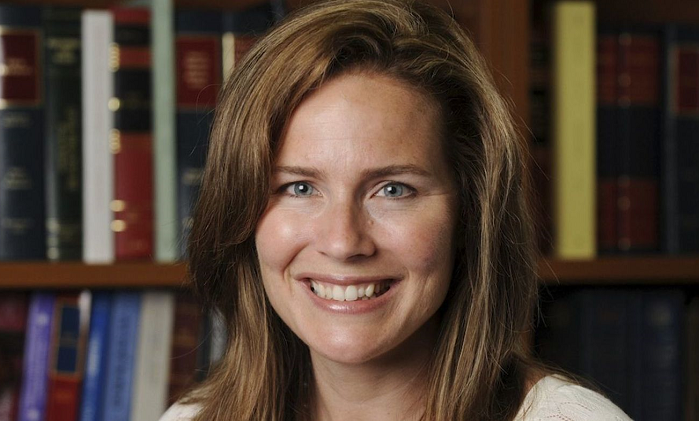There is probably no bigger abrogation of upholding the Constitution and the rule of law as the Roe v. Wade Supreme Court decision. In it, the nation’s highest court literally read a right into the text of the guiding document for our nation that just isn’t there: the supposed right to kill babies in abortions.
That’s why, when it comes to judicial nominations — and especially nominations to the Supreme Court — pro-life conservatives look for people who respect and understand the rule of law. And the rule of law is a proper understanding of the roles of the three branches of government, a basic Civics 101 primer that legislatures make the law and the court’s merely interpret it when there is confusion.
In an interview with the Daily Signal, it appears Judge Amy Coney Barrett understands that a judge’s true responsibility is to follow the rule of law, and not legislate from the bench.
SIGN THE PETITION: Vote to Confirm Supreme Court Nominee Amy Coney Barrett
Slattery: Shifting gears a bit, your faith has been a subject of quite a bit of scrutiny. It came up during your confirmation hearing, and you said that a judge may never subvert the law or twist it in any way to match the judge’s convictions. You sort of became a meme with the “dogma live loudly.” So could you talk a little bit about how judges handle any conflicts between their faith and what the job requires?
Barrett: Well, the statement that you just quoted from my confirmation hearing is what I believe and it’s been my consistent position ever since I was a law student when I wrote with my professor the law review article that got so much scrutiny during my confirmation process.
I don’t think that faith should influence the way a judge decides cases at all. As I said, I don’t think that a judge should twist the law to bring it into line or to help it match in any way the judge’s own convictions. And that’s true, whether they derive from faith or, everyone has convictions, everyone has beliefs. That’s not unique to people who have faith.
And so somehow people seem to think that I said the opposite of what I said, but I think that one of the most important responsibilities of a judge is to put their personal preferences and their personal beliefs aside because our responsibility is to adhere to the rule of law.
That will be a refreshing change from Justice Ruth Bader Ginsburg, who thought her duty was to cement abortion as a foundational human right.








